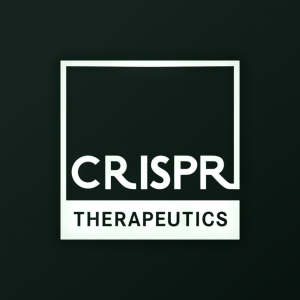CRISPR Therapeutics Presents New Preclinical Data for CTX460™ Demonstrating In Vivo Gene Correction of Alpha-1 Antitrypsin Deficiency (AATD) Utilizing Novel SyNTase™ Editing Platform
Rhea-AI Summary
CRISPR Therapeutics (NASDAQ: CRSP) reported preclinical CTX460 data using its SyNTase™ editing platform for Alpha-1 Antitrypsin Deficiency (AATD). Key results shown at ESGCT 2025 include >90% mRNA correction, a 5-fold increase in total serum AAT, and an >99% M-AAT:Z-AAT ratio in disease models after a single dose. Near-saturating hepatocyte editing occurred at doses as low as 0.1 mg/kg, with >90% mRNA correction at 0.5 mg/kg and durability of effect up to 7–9 weeks in rodent models.
CTX460 is formulated in a proprietary LNP and is expected to enter clinical testing in mid-2026, positioning the program as a potential best-in-class, mutation‑targeting approach for AATD.
Positive
- mRNA correction >90% at 0.5 mg/kg
- Total serum AAT increased >5-fold post-dose
- Serum M-AAT:Z-AAT ratio >99% after treatment
Negative
- Durability measured only up to 7 weeks in rats, 9 weeks in mice
- Efficacy shown only in mouse and rat preclinical models
- No human clinical safety or efficacy data yet
News Market Reaction
On the day this news was published, CRSP declined 2.47%, reflecting a moderate negative market reaction.
Data tracked by StockTitan Argus on the day of publication.
-Preclinical data presented at the European Society of Gene and Cell Therapy (ESGCT) highlight a potential best-in-class profile-
-The AATD program, CTX460, is the first investigational candidate to emerge from the SyNTase editing platform and the Company expects to initiate a clinical trial with CTX460 in mid-2026-
-CTX460 showed specific and durable effects, with >
ZUG, Switzerland and BOSTON, Oct. 10, 2025 (GLOBE NEWSWIRE) -- CRISPR Therapeutics (Nasdaq: CRSP), a biopharmaceutical company focused on creating transformative gene-based medicines for serious diseases, today reported new preclinical data from its novel SyNTase™ gene editing platform for the treatment of Alpha-1 Antitrypsin Deficiency (AATD). The data are featured in an oral presentation titled “Single-dose in vivo gene correction of AATD via LNP-delivered SyNTase editors” at the European Society of Gene and Cell Therapy (ESGCT) 2025 Annual Congress. The AATD program, designated CTX460™, is the first investigational candidate to use SyNTase editing and is expected to enter the clinic in mid-2026.
“Alpha-1 antitrypsin deficiency remains an area of significant unmet need, with current treatments unable to address the underlying genetic cause. The goal of therapy should be to normalize alpha-1 antitrypsin levels,” said Naimish Patel, M.D., Chief Medical Officer of CRISPR Therapeutics. “The preclinical results demonstrate the potential of CTX460, developed using our novel SyNTase editing platform, to correct the mutation with precision and efficiency. The data support CTX460’s potential best-in-class profile in AATD, and we look forward to advancing CTX460 into the clinic in mid-2026.”
AATD is a genetic disorder most commonly caused by a mutation in the SERPINA1 gene, referred to as the Z allele (PiZ, E342K). The majority of patients with severe disease carry two copies of this variant (ZZ genotype). SERPINA1 encodes alpha-1 anti-trypsin (AAT), a protein produced in the liver that protects the lungs by regulating neutrophil elastase, an enzyme that can damage lung tissue if left uncontrolled.
In AATD, the PiZ mutation (SERPINA1-E342K) produces a misfolded form of AAT, known as Z-AAT, which accumulates in the liver as misfolded AAT polymers that can contribute to fibrosis and cirrhosis. At the same time, insufficient circulating functional AAT, which is produced by the wild-type M allele (M-AAT), leaves the lungs vulnerable to emphysema and other serious diseases. Patients with two Z alleles, typically have serum AAT levels of ~5-6 mM, whereas normal levels are usually at least 4-fold higher (>20mM). The current standard-of-care requires weekly intravenous (IV) infusion of purified functional M-AAT protein to mitigate lung disease symptoms, but no approved therapies address the underlying genetic cause. Better therapies are needed that can normalize AAT levels to minimize risk of lung disease progression.
CTX460 is a SyNTase editing-based investigational candidate targeting the E342K mutation in SERPINA1, encapsulated in a de-risked, proprietary lipid nanoparticle (LNP). The preclinical data presented today evaluated CTX460 in two preclinical models of AATD: the well-established NSG-PiZ mouse model, which carries human SERPINA1 Z alleles, and a novel humanized PiZ rat model in which the normal rat SERPINA1 gene is replaced with the human mutant SERPINA1 E342K variant. These models were used to evaluate gene and mRNA correction, serum protein levels, and durability of effect following a single dose of CTX460.
CTX460 Key Preclinical Data Highlights
- A single dose of CTX460 achieved significant, dose-dependent correction of liver DNA in both rat and mouse AATD models, with near saturating editing in hepatocytes at doses as low as 0.1 mg/kg. Furthermore, a single dose of CTX460 was able to achieve >
90% mRNA correction at a clinically relevant dose of 0.5 mg/kg in PiZ mice. - Relative to pre-dose values, editing with CTX460 yielded a >5-fold increase in total serum AAT levels with an M-AAT:Z-AAT ratio of over
99% in the serum of PiZ rats. AAT upregulation was linearly correlated with editing efficiency. - Durability of editing was maintained in both rat and mouse models for up to 7 weeks and 9 weeks, respectively.
Together, these data provide preclinical proof-of-concept for a potential best-in-class approach to address the underlying cause of AATD and support the use of SyNTase editing as a promising platform for the treatment of both rare and common disorders.
About CRISPR Therapeutics
Since its inception over a decade ago, CRISPR Therapeutics has evolved from a research-stage company advancing gene editing programs into a leader that celebrated the historic approval of the first-ever CRISPR-based therapy. The Company has a diverse portfolio of product candidates across a broad range of disease areas including hemoglobinopathies, oncology, regenerative medicine, cardiovascular, autoimmune, and rare diseases. In 2018, CRISPR Therapeutics advanced the first-ever CRISPR/Cas9 gene-edited therapy into the clinic to investigate the treatment of sickle cell disease and transfusion-dependent beta thalassemia. Beginning in late 2023, CASGEVY® (exagamglogene autotemcel [exa-cel]) was approved in several countries to treat eligible patients with either of these conditions. The Nobel Prize-winning CRISPR technology has revolutionized biomedical research and represents a powerful, clinically validated approach with the potential to create a new class of potentially transformative medicines. To accelerate and expand its efforts, CRISPR Therapeutics has formed strategic partnerships with leading companies including Vertex Pharmaceuticals. CRISPR Therapeutics AG is headquartered in Zug, Switzerland, with its wholly-owned U.S. subsidiary, CRISPR Therapeutics, Inc., and R&D operations based in Boston, Massachusetts and San Francisco, California. To learn more, visit www.crisprtx.com.
CRISPR THERAPEUTICS® standard character mark and design logo, SyNTase™ and CTX460™ are trademarks and registered trademarks of CRISPR Therapeutics AG. CASGEVY® and the CASGEVY logo are registered trademarks of Vertex Pharmaceuticals Incorporated. All other trademarks and registered trademarks are the property of their respective owners.
CRISPR Therapeutics Forward-Looking Statement
Statements contained in this press release regarding matters that are not historical facts are “forward-looking statements” within the meaning of the Private Securities Litigation Reform Act of 1995. Because such statements are subject to risks and uncertainties, actual results may differ materially from those expressed or implied by such forward-looking statements. Such statements include, but are not limited to, statements made by Dr. Patel in this press release, as well as regarding any or all of the following: (i) CRISPR Therapeutics preclinical studies, clinical trials and pipeline products and programs, including, without limitation, manufacturing capabilities, status of such studies and trials and expectations regarding data, safety and efficacy generally; (ii) data included in the above-described oral presentation and any associated materials; (iii) regulatory submission timelines; and (iv) the therapeutic value, development, and commercial potential of gene editing technologies and therapies, including CRISPR/Cas9 and SyNTase, as well as other technologies. Risks that contribute to the uncertain nature of the forward-looking statements include, without limitation, the risks and uncertainties discussed under the heading “Risk Factors” in CRISPR Therapeutics most recent annual report on Form 10-K and in any other subsequent filings made by CRISPR Therapeutics with the U.S. Securities and Exchange Commission. Existing and prospective investors are cautioned not to place undue reliance on these forward-looking statements, which speak only as of the date they are made. We disclaim any obligation or undertaking to update or revise any forward-looking statements contained in this press release, other than to the extent required by law.
Investor Contact:
+1-617-307-7503
ir@crisprtx.com
Media Contact:
+1-617-315-4493
media@crisprtx.com










